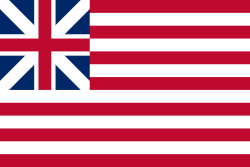| Fifth North Carolina Provincial Congress | |||||
|---|---|---|---|---|---|
| |||||
 | |||||
| Overview | |||||
| Legislative body | North Carolina Provincial Congress | ||||
| Jurisdiction | North Carolina | ||||
| Meeting place | Halifax Court House | ||||
| Term | November 12, 1776 – December 23, 1776 | ||||
| Provincial Congress | |||||
| Members | 187 delegates | ||||
| President | Richard Caswell | ||||
| Vice President | Cornelius Harnett | ||||
The Fifth North Carolina Provincial Congress or 1st North Carolina Constitutional Convention was the fifth and final meeting of the North Carolina Provincial Congress. Composed of 187 delegates from 35 counties and ten towns, it met at the court house in Halifax from November 12 to December 23, 1776, in the first year of American independence. Richard Caswell of Dobbs County was unanimously chosen as president, and Cornelius Harnett of Brunswick County as vice president. [1] [2] [3]








